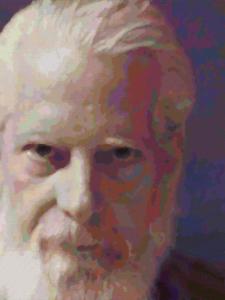Lucy R.
asked • 12/12/12Is there any proof that Shakespeare wrote his plays?
How do people know he did it?
18 Answers By Expert Tutors

Mary P. answered • 04/22/19
Graduate degree, Literature and Writing Tutor
His authorship was never in question until 1856 when an American woman named Delia Bacon published essays proposing Francis Bacon as the actual author or even collaborative authorship of the plays. She ended her days in an insane asylum. This led to a frenzy of other anti-Stratfordians ranging from Emerson, Mark Twain, Freud, Derek Jacobi. The reasoning behind this seems to consist of 1) someone without a college education could not have written the plays, 2) someone from a backwater place like Stratford could not have written the plays, 3) someone unfamiliar with court circles could not have written the plays, 4) someone who hadn’t traveled couldn’t have written the plays, 5) a lowly actor could not have written the plays, 6) there is very little information about Shakespeare.
Dealing with these objections:
1) This reason makes Christopher Marlowe a popular substitute because of his Oxford degree. Shakespeare did attend a very respectable grammar school in Stratford that would have been rigorous. And Oxford at the time was often lackadaisical….
2) His descriptions of countryside in many of his plays in tiny details match exactly what the Warwickshire countryside looks like.
3) the theory that you can only write what you know about didn’t even come into existence until the 20th century and it is ridiculous
4) He makes geographical mistakes. In the Tempest, he has Prospero and Miranda getting into a boat from Milan right into the sea but it is landlocked. Gave Bohemia a seacoast and a desert in Winter’s Tale. He sets his plays in exotic places like Italy but everyone acts like Englishmen.
5) His plays are filled with metaphors about the stage as we see in Hamlet and the Tempest. Macbeth--Life's but a walking shadow, a poor player, That struts and frets his hour upon the stage, And then is heard no more.
6) There is actually more information about Shakespeare than any other playwright of that time. We have several legal documents in which he appears. In the first folio, a letter by his fellow actors, “It had bene a thing, we confess, worthy to have been wished, that the author himself had lived to have set forth, and overseen his own writings….Who, as he was a happy imitator of Nature, was a most gentle expresser of it. His mind and hand went together: And what he thought, he uttered with that easiness, that we have scarce received from him a blot in his papers.” He is frequently mentioned by contemporary writers during his lifetime. Ben Jonson, a good friend of Shakespeare, wrote this in the first Folio of Shakespeare: Soul of the Age, Thou art a monument without a tomb/ and art alive still while thy book still live….[says he had small Latin and Greek, compares to other playwrights] He was not of an age, but for all time!

Pamela K.
Very nicely explained. Shakespeare definitely wrote those plays! Another anachronism is that he had the clock strike in Julius Caesar when the Romans still told time with a sundial.03/30/20

Pamela K.
Very nicely explained. Shakespeare definitely wrote those plays! Another anachronism is that he had the clock strike in Julius Caesar when the Romans still told time with a sundial.03/30/20

Kathryn C.
05/06/22

Robert P.
Good answers, all. My position is that the identity of the Shakespeare of the plays is a trivial matter. The cannon speaks for itself and it speaks the sort of genius that has appeared few times in history. That a glove maker from Stratford could recast the English language provides a working-class genius, a hero that our culture celebrates. Truth is beside the point.08/25/22

Michael R.
09/04/23

Josh M.
Read the plays, and then compare them to any other playwright of the time. Then read the plays that he co-authored or partially authored with someone else like Timon of Athens. It becomes clear rather quickly that he wrote them. No other author of the time period was at that caliber.11/14/24
Toby F.
You You I used to flirt with the Oxfordian theory, but a visit to Stratford changed my mind. The local details in the plays felt too specific to be faked. Also, genius doesn’t require a degree—my grandmother, with little schooling, wrote letters that still stun me. Thanks for laying out the objections so clearly.09/04/25

Kris P. answered • 03/26/13
Education/Research/Media/Communications Specialist: FACTOTUM: FOR HIRE
Is there proof you wrote this question on Wyzant?
Donna Ann P. answered • 12/16/12
Experienced English Tutor: Essays, Term Paper Emergencies, and ESL
Hi Lucy:
Alex Knapp of Forbes magazine wrote an excellent article on this subject. See: http://www.forbes.com/sites/alexknapp/2011/10/19/yes-shakespeare-really-did-write-shakespeare/
Shakespeare was both an author and actor, and he would have modified his works to improve actors' performances. He would also have modified his plays in response to his fellow actors' and playwrights' critiques of his works. He was also apparently critiqued in pamphlets of his day. See the above article. While he may not have authored every word, it appears that he wrote many of his plays.

Gary B.
Hi Donna,
I feel strongly that Howard D has nailed it, I'm afraid. Nobody will ever know exactly whom it was that wrote those wonderful plays and sonnets. While I lean towards the Earl of Oxford using Shaksper as his beard to avoid the scandal of royalty dabbling in an art form associated with the lowest form of society, there are an equal number of fascinating arguments supporting either side. I find the most fascinating aspect about the canon is how much heated uproar has been in existence for at least two decades already, with little to no sign of it ever abating, at least among academics, which I am not. I just enjoy catharsis and humor in any form. The debates provide me with lots of humor!
I don't feel it's fair IMHO to definitively answer that Shaksper could write even his own name, much less a play, which is famously evaded on the authorship question by saying merely that the play, after all, is the thing that truly matters (heavily paraphrased; my apologies.)
All in great fun,
Gary B., commoner
01/06/13

Roger S.
Hi Gary, Nice job countering the prejudice. It seems there is still much to learn on this topic.11/06/23

Josh M. answered • 11/14/24
Expert professional educator: From writing to submission.
A much shorter answer is this: Read the plays, and then compare them to any other playwright, or poet, of the time. Then read the plays that he co-authored or partially authored with someone else like Timon of Athens (which I found, personally, to be an awful play). It becomes clear rather quickly that he wrote them. No other author of the time period was at that caliber. I suppose it is possible to claim some lord or lady wrote them, but, in truth, if they never made any kind of claim to the authorship then Shakespeare, though a real person, might as well have functioned something like a pen name.
During the Renaissance, knowledge was based on what one could learn from one's own trade, one's job, and one's world view or Weltanschauung, was based on text derived from the dubious sources, such as the resources from Tik Tok, Former mass media called Twitter or whatever is "truth" or "It is on the Internet; it must be true or the infinity of so-called facts or ersatz, AI hearsay, alternate realities, or propaganda. During the bard's time, the audience regarded the creation of the artwork or imagination-product, the Craft/Kraft was creative genius based upon art is collaborative a not a sole person. The spirit was in the air and not in the individual. The actor was played by men--there were no women. So gender identity does not fit. Judith was a male playing a woman who was playing a man in disguise! Like Rembrandt or Rubens art was a product of artisans. Thus, art was not centered in Individual geniuses.
Erik L. answered • 12/30/22
Master's Degree in English Writing, Literature and Publishing
There is a significant amount of evidence that suggests William Shakespeare wrote the plays and poems that are attributed to him. While there is no definitive "proof" that Shakespeare was the author of these works, there are several pieces of evidence that support his authorship.
One piece of evidence is the testimony of contemporary accounts, including that of Ben Jonson, who referred to Shakespeare as "the sweet swan of Avon" in his poem "To the Memory of My Beloved, the Author, Mr. William Shakespeare," and referred to him as "our esteemed and most worthy memory, Mr. William Shakespeare" in the preface to his play "The First Folio."
Other evidence includes the numerous references to Shakespeare in legal documents, such as court records and wills, as well as the numerous references to Shakespeare and his plays in the works of other writers of the time.
Additionally, stylometric analyses of the plays and poems attributed to Shakespeare have found them to be consistent with the writing style of other known works by Shakespeare, and there are no records of any other playwright or poet claiming authorship of the works attributed to Shakespeare.
Overall, while it is impossible to prove that Shakespeare wrote his plays definitively, the evidence strongly suggests that he was the author of the works attributed to him.
Best,
Erik L.
Abhilasha S. answered • 01/24/22
My self Abhilasha , I am a offline tutor
Yes,kali dash is known as William Shakespeare
Great question! The short answer is no, there is no "proof" that Shakespeare wrote the plays. Why? Because in the Early Modern world of drama, original scripts were never kept or archived. Once actors memorized their lines, the paper on which the plays were written was used for something else, including toilet paper.
The only play that can be "proven" to be in Shakespeare's hand resides in the British Library, where experts have identified a "Hand D" that likely was Shakespeare's writing. This play was a collaborative effort among playwrights, a not uncommon occurrence on the Early Modern stage. There are only a few other written documents in what scholars believe is Shakespeare's hand, and those are all legal documents such as wills.
Lots of Shakespearean scholars and others theorize that Shakespeare did not write his plays. But I refer to the question posted in an answer above: does it matter? The words are beautiful and powerful, and the themes are immortal. The plays transcend time.
So no, there is no proof, but there is one thing we can be sure of: the plays are "such stuff as dreams are made on."
Keep reading!
Faris E. answered • 12/02/21
Been teaching English to Arabic speakers for 25 years
Is there any proof that he didn't?! 😉
Raymond B. answered • 08/11/21
Math, microeconomics or criminal justice
Shakespeare seems to have written so much, that people do wonder if one person could have done it all.
Compare other similar problems. Did Moses write the Torah? Biblical authorities slice and dice the 5 books in JEPD, line by line, as if there were at least 4 different sources, not one. Or did Paul write all the letters of the New Testament? Some argue there were at least two Pauls. Some argue "Paul" didn't exist at all. Or Acts? Some argue the author was a woman, and women couldn't get published or recognized, so they assumed a male name, like Luke.
Or Aristotle. Did he really write everything under his name? Or was he like a college professor taking the work of his students and claiming credit for what others did?
Or Darwin? People sent him things, such as Alfred Wallace and many others. Darwin took credit for natural selection, when it was Wallace who did it first. Did Darwin just "steal" the idea?
Newton was certain Liebniz stole his calculus. Many believe Liebniz did steal it, pretending he developed it on his own.
Shakespeare wrote so much, it's unlikely he was the sole author, if he was the author at all. If there were a real Shakespeare at all. And much of what he wrote could be considered anti-royalty and get him in trouble with the monarchs. You'd likely want to remain anonymous and use another person's name.

Anna H. answered • 04/08/21
Writing/College Apps, Essays Coach|K-12 Math, English, French Teacher
Those are all awesome answers, tutors!
There is also a wonderful book and terribly well researched at that, by Bill Bryson, titled "Shakespeare." In it, Bryson discusses several different theories about who may have written Shakespeare's plays, if not him, and also who Shakespeare was and whether he even existed. He even discusses the spelling of Shakespeare's name and compares the only few signatures that seem to have been Shakespeare's.
Anna :)

Benjamin W. answered • 10/27/19
Patient tutor for students with special needs.
No real proof, few handwriting samples remain, few contemporary accounts. However, that's how it is for a lot of writers at the time. The only proof is in the tone; Shakespeare's plays all have a similar use of words, conflict, and character development. They are very different from Marlowe's works. As for his knowledge of exotic foreign habits, he doesn't write them perfectly; the places and customs mentioned in The Merchant of Venice could easily have been gleaned from someone who'd been there, and there's nothing especially Italian about the play. Both The Merchant of Venice and Romeo and Juliet could have taken place in England.

Jessica W. answered • 06/24/14
Jessica the Future Student Teacher- English, History, some Music

Haley S. answered • 06/30/13
Study Strategies (incl. AD/HD), English, Writing, Test Prep
Matthew, you've made an interesting point for transition which I would like to take. This is an extremely interesting question when you look at it through the lens of Stephen Greenblatt, Roland Barthes, and Michel Foucault.
Stephen Greenblatt would be most interested in reading Shakespeare because of what "Shakespeare the man" accomplished and achieved in his life juxtaposed next to what he likely wrote and why he may have written it. Therefore, he would care the most about an answer to this initial question, as one can watch in his PBS interview about his book entitled, "Will in the World: How Shakespeare Became Shakespeare."
Roland Barthes in "Death of the Author" on the other hand begins with your question: does it matter? He responds with something along the lines of "studying the author himself has nothing to do with what he wrote." He calls to metaphorically "kill the author" in literary criticism.
In "What Is an Author?" which is a response to Barthes, Michel Foucault argues that yes, it would be awesome to be able to separate the author as he lived from the his texts that he left behind; however, that is impossible. In terms of Shakespeare for Foucault, you can kill William Shakespeare, the actual man that lived and probably wrote plays, but you cannot kill the function of author, or what Shakespeare represents in his texts, because not only do his texts outlive his bodily form, but they continuously reinforce a reader's impressions and schema of the word "Shakespeare."
Ultimately, this simple question, "Is there any proof that Shakespeare wrote his plays?" is reminiscent of decades of theoretical discussions.

David O. answered • 06/22/13
Years of Experience in Many Areas
When one wishes to make exceptional claims one must deliver exceptional proof. If one wishes to theorize that Hannibal's army used explosives and chemical weapons (there is an actual academic article that proposes this rather eccentric theory) then the author must find chemical weapons laboratories that existed in Carthage at the time of the Punic Wars or some other solid proof, otherwise the theory can be discounted. Similarly, if one wishes to prove that Shakespeare was not a great author then one must offer solid proof.
Further, what is often offered as proof is easily explicable.
1: He spelled his name different ways. Explanation: First, accurate spelling was not considered important in the Elizabethan Era. It did not become at all important until the publication of the first dictionary, which was not until the Regency period. Second, people still do that today. John Mellencamp, Prince (The Artist), and "Puff Daddy" have changed their names several times. In the case of my family, think of the various spellings of "Osbourne" "Osborne" "Osbourn" "Osborn" etc. Each is a variant of the same name, and each was chosen as a preferred spelling by some ancestor of each line of the family
2: Some of his stories were better than others. Explanation: Think of music. Let's apply this theory to the Beatles. Was every Beatles song of equal quality? Did every album receive identical reviews? Of course not. Some (especially those written under the influence of Yoko Ono were awful) others were classics. Think of your favorite band? Are all of their albums equally good? Do you like every song equally?
3: He was uneducated. Education was not as formalized, indeed it is still not completely formalized. Simply working in the theatre business would have exposed him to what would amount to a liberal arts education today. As another example, Poe was a better poet at age 12 than most people are after years of training and classes.
So, until there is a box of lost Shakespeare manuscripts (say Love's Labors Found) uncovered in the Lord of Oxford's manor, we have to accept Shakespeare as the author and the idea that he was a false front for another as a theory with no firm evidence.

Matthew S. answered • 02/24/13
Published Poet. Creative Writing, Poetry, English Skills
The most profound answer to the question is (in my humble opinion): Does it matter? The scholarly detective work is interesting, to a point, but I believe that time is better spent studying the plays and poetry. The truth is, there are certain types of people who want their names attached to the "Greats" of history. In some small way they become Shakespeare by working on this problem, or by becoming an expert on "Hamlet" for example. They become Einstein by writing about Einstein, a Beatle by writing about The Beatles. Have you ever felt that pull? I have. Let me make it clear that I don't for a second believe all scholars pursuing this issue are like that, but there are some. There have been, are, and will be, many great Shakespearean scholars. I would love to listen to them discuss the Bard, wouldn't you?
Matthew
Matthew
Charlene R. answered • 01/11/13
Experienced and Knowledgeable ESL & JSL Language Arts Tutor
The main reason that people have questioned whether William Shakespeare wrote his own plays has to do with his education. He was not a university man and most of the plays of the day were written by university men. His education went through the age of 12 (traditionally), but there is newer proof that he continued his education to the age of 14, 15, or even 16. What we fail to take into account is that he essentially had a Classics education and that even by the age of 12 he was fluent in Latin and had some knowledge of Greek. What this means is that he was educated in the very areas that figure quite strongly in his choice of subjects. But he was not a university scholar and many have been unable to wrap their minds around the idea that his best work was as brilliant and iconic as it was, or that his influence has continued into the present time. And so many people have come up with theories about who Shakespeare really was and they have presented a great deal of "evidence" so called, to back up their theories. These theories get awfully involved, however, because they are just that, theories.
Many new facts are coming to light as the old Elizabeth records are looked into, but there are some very simple common sense facts that would lead most of us to believe that Will Shakespeare was the greatest English writer ever.
Probably the most telling thing is that he existed within the world of the Elizabethan theatre and this was not the huge Hollywood concern we have today, with actors working out of all sorts of countries, and more people than can be named. There were not that many theatre companies around. And they all competed for the same audiences. And the great playwright, Ben Jonson, himself a university man, accepted W.S. as W.S. within his own time. Given the animosity towards W.S., if it could have been proven that he was not the writer, someone would have gone after him on those grounds alone. Instead, there were some who tried to put him down for flying too high, but no one questioned his authorship during his lifetime or even in the years afterwards, when the first portfolios were brought out. Ben Jonson wrote a moving and telling tribute to Will on his death, though they had been great rival playwrights in life.
I don't think we moderns realize the difference between the amount of information that was available in those times and the amount we are inundated with today. The information available in those times was much less. People had time to think and to reflect and Will had the framework (Classics plus real life living on the ground knowledge, the persecution on religious grounds of his own relatives--at least these for certain)which would let a man of natural genius flourish as a playwright. In other words, though he wasn't a university man, he was a man of his own world, living at the center of that world.
His work was carried on as a member of a company which was both established on site and traveled extensively. As did all the players he did a lot more than just act. His plays were enacted by his own company. When traveling they lived closely. Will would have have made corrections while the play was being produced. In short he carried on his work in an extremely public way. It is very difficult to imagine anyone getting away with producing someone else's plays in that kind of setting.
It has been argued that Will would not have had the knowledge of places and names to write his works. But London was a world capital and a port city. People would have come through on all kinds of business, talked of all kinds of places they had been, all kinds of things they had done. Will was a borrower of knowledge in his plays. He took old stories and made them new. What he displayed in his best works was a deep psychological and spiritual understanding of the personality and the soul of man. That is not something a university education can give. He effected such a wonderful balance between words and substance, a balance rarely achieved in literature, even good literature, some cannot forgive him for it and believe he is the great writer.
Another reason authorship has become a "mystery" is that Will's originals were all destroyed by fire. So there is no original copy of a Shakespeare play. And people love a mystery. It is only recently that more and more Elizabethan law records are coming to light which give more credence to Shakespeare the man. And learning about Shakespeare the man helps us in validating Shakespeare the writer.
The best way to determine your own opinion, however, is to read widely on the life of Shakespeare. Don't just read the Shakespeare was X theorists, however. Read the modern standard works on his life. Search out a video series which is called, if I remember correctly, "In Search of Shakespeare". It is an English series. Make up your own mind, but gather enough information to make a good determination and come at it with an open mind.
Howard D. answered • 12/18/12
School Teacher, Army Veteran, and International Author Tutors All Ages
Well, if you could find rock hard solid evidence that William Shakespeare wrote his plays, that would eliminate all doubts, and make you very famous indeed as this is an issue that has been debated since the 1800s, with the jury still out deliberating the matter.
On my blog I have published both sides of this question in extensive detail in the two entries entitled British Literature: In Defense of William Shakespeare, and British Literature: The Case Against William Shakespeare.
Hope these will help you understand what is known as the Anti-Stratfordian Theory, or those who believe Shakespeare did not write these plays he is credited with having written, and the side that popularly believes he did.
Still looking for help? Get the right answer, fast.
Get a free answer to a quick problem.
Most questions answered within 4 hours.
OR
Choose an expert and meet online. No packages or subscriptions, pay only for the time you need.









Charlene R.
As you can see from the multitude of answers, there are still varying opinions as to who wrote Shakespeare. The debate is a long standing one. And the best way to resolve it is to study the question out for oneself.
One must use common sense. Conspiracy theories are always titillating.
Some points of reference for one studies:
1. There are allusions all through Shakespeare's works to his home area,( e.g. the forest of Arden.) to the glover's trade, which was his father's (this allusion shows a detailed understanding of the trade), and so when you are studying the problem out, look for these things--things which show his background.
2. He was well known in a relatively close knit society. He was part of a troop of players who worked openly among themselves, each of them taking on various jobs related to putting on their plays, besides their stage work. This was not the era of specialization in theatre. they didn't have the luxury of rehearsing a play for a month or two. And they spent a lot of time on the road together (especially during plague season). In other words Shakespeare didn't write in secret in an ivory tower. So examine this background against claims that various earls or men of science wrote the works.
3. He was well known among his own contemporary playwrights. Barnum and Bailey once said that you can't fool all the people all the time. Ben Jonson was a great rival of his and also a great admirer. He might have fooled some. I doubt he could have fooled a playwright of the stature of Ben Jonson. Other jealous and lesser playwrights criticized him, but there was not ONE during his own lifetime who ever suggested that he was not the author of his own plays. With the rivalries and the strong jealousies this argues strongly for Shakespeare's authenticity.
4. The basis of the argument against Shakespeare is that, not having a university education, he could not have written plays which outshone every university educated playwright of his time, and indeed every English language playwright since. After all he had only 6 to 10 years of education altogether. But how many geniuses follow the mold anyway. Further, his education amounted to a Classics education at university level in modern times (except perhaps for the level of his Greek). He was not without access to literary sources. And he borrowed from sources freely and often. He was not concerned with developing his own plots. This meshes well with the works of a man as active as he was and a man of genius.
5. The argument for Essex is based on names and place names that, supposedly, Shakespeare would not have had access to, and on an acquaintance with the court that he would not have had. Yet, we know that his own people were related to ranking Catholic families in an era of persecution which would have made ties even closer. We know that London was a port city and as such, cosmopolitan, so that these names and the place names would would not have been out of his ken.
We also know that he presented at court and a playwright of his caliber, by nature, would have been a keen observer of people and their manners and mores.
Indeed he shows an acquaintance with the lower classes of society as well, that were understandable in a man who moved between worlds than in an aristocrat.
So, for every sense-seeming argument against Shakespeare there are many more common sense arguments for him. Think in life context when studying these things out. His genius was so extraordinary and his works so still relevant contemporaneously and his language was the crystallization of the flower and fruit of the English language, that there are those who find it hard to believe that a glover's son could have accomplished this work. So if you are going to examine it, read widely. I myself have no doubts that William Shakesepeare of Stratford-on-Avon was the author of the works of William Shakespeare.
07/01/13